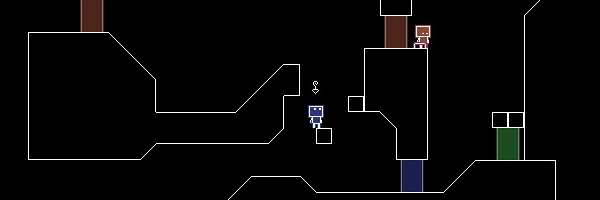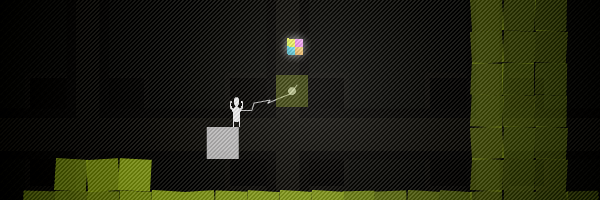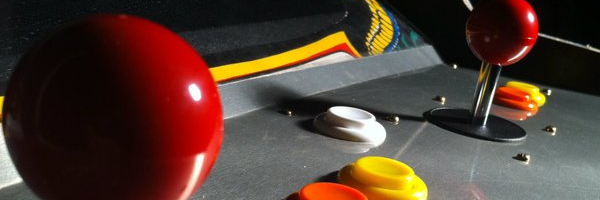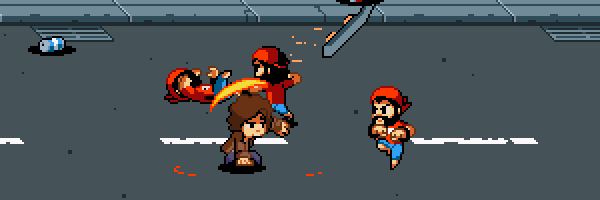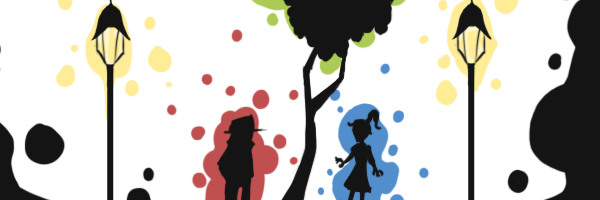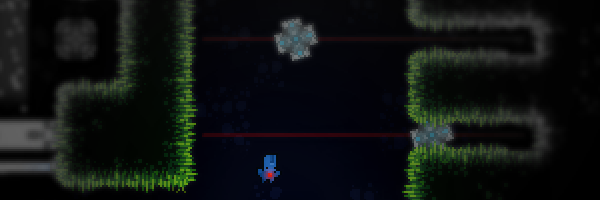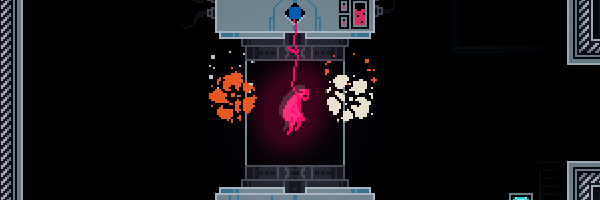
(2012) Years of Game Development Adventures
July, 2012
I decided it might be interesting to try and explain my game development history, and the commercial games I have created. At the time of writing this blog post, I've sold several of my games to sponsors and done some contract work, so I thought it was a good time to write a post-mortem on how these all went down, what I've learned, and what I want to do in the future. Hopefully some people will find this interesting and useful in their own way.
THE GAME-MAKER BEGINNINGS
Before I begin I should explain some of my history creating video games. I didn't start making any "commercial"; games for several years. It took a lot of hard work beforehand.
I first started making games in Game Maker, a tool that I loved to use for about 4 years. My dad introduced me to Game Maker when I was 11 or 12 but it wasn't until I was 13 that I could actually handle the program. At which point, I became obsessed with the tool. It soon became my daily activity; the thing that I would go do when there was nothing else to do. I remember in grade 9 (first year of Highschool in Canada) I would wake up at about 5am, work on my games for several hours before school, and then come back from school around 4:00pm and work on games until I fell asleep. It's all I did, and all I really wanted to do at the time. Jump ahead several years, and I've now completed several games, though nothing of which I would call very high quality. However, I'm 15 and anything considered remotely playable was a huge success and milestone. I was contacted by a teacher at a local school who wanted to build this Math game for some of his students, and I eagerly agree to make the game for $250. It was a small prototype and took a few weeks to make, but for a 15 year old kid I was going crazy. I'd somehow made money from the activity I spent all my free time on. From this point onwards, I knew I wanted to make games, and I knew that some people were willing to pay for me to do so (no matter how small an amount they were interested in paying).
AS3 AND LEAP 4 BLUE
When I was 17 I started getting into AS3 with help from friend and awesome independent developer Chevy Ray. He had just created the FlashPunk library and I eagerly downloaded it the day it came out. I was utterly confused, and it took several months for me to sort through it and build something that anyone could consider a game. With lots of help from other developers, I eventually finished my first Flash game. At the time I didn't understand Flash sponsorships and did not go seeking any money for it. Money wasn't really on my mind at this point, either. Though I knew Flash games could go commercial, I didn't think I had the skill involved to sell anything I made.
A few months later, I went to my first Game Jam, and met independent game developers in-person for the first time ever. This is where I met Alec Holowka, who has since become a really good friend and collaborator.
I want to make something VERY clear here. If you're an aspiring game developer, like I was and continue to be, my largest suggestion for you is to go meet other developers. Save up money and go to GDC or a GameJam close to you. I doubt I'd still even be making games to the extent I do if I hadn't made an effort to make it out to this first jam. At this game jam, with tons of help from Chevy, I created a prototype called Leap 4 Blue (named by internet friend, Jack). Due to the game jam and meeting other flash developers, I was introduced to the idea of Flash sponsorship.
This is where I realized that other developers who actually made a living from games thought my little projects had value, and I should try for Sponsorship. So that's what I did with Leap 4 Blue. It took several months to complete, and was released in September/October of 2010. All told, I made a few thousand dollars from this game (by the time I paid off Flash Game License, my musician Liam Berry, and the $100 I donated to FlashPunk). Looking back, I think I was extremely lucky with the amount I was paid. I feel like the game probably wasn't worth what I got, but in this case I happened to be lucky and things worked out the best for me. For a first commercial flash game, don't expect this much. Andy Moore has a great blog post on this.
THE DOWN-TIME AND THE WINNITRON
At this point, I knew I could make money from games and I had a solid idea as to how to do it. I knew people would pay for Flash games, and I realized I had the potential to make games people felt had value. This did not help with my development. Before, I would just make games that I enjoyed making. Suddenly I felt pressured to make something good and every idea I had I would throw out because I felt no one would buy it. That's a bad mindset to have, especially for a young developer just trying to make games.
The next 8 months I tried making more flash games, and learned a LOT on the way, but never got anything that I really liked. I went through dozens of prototypes and tried lots of things, but nothing really stuck. Throughout this time I also worked on the Winnitron arcade cabinet, so although I didn't have any new work to show, I felt like I was at least helping a really cool project along.
It's a weird feeling when you're not getting anything "done"; I know looking back that I learned a lot in those months, but at the time I felt pretty bad about not finishing anything. I knew I could. I had done it before. But I just couldn't get anything that felt right. Which sucked, and it was a bit depressing.
INCUBATTLE
I went to GDC for the first time in 2011 with my fellow Winnitron crew, and was super inspired by what I saw. I met tons of developers and was blown away with what everyone was working on. I really wanted to get a new game done after going to this. I'm not going into a lot of details about my experience at GDC, but basically what I want to say is that if you can make it, GO. It's given me the most inspiration ever, and I've met a lot of good friends and collaborators there.
Shortly after GDC, I was offered to work on a game called Incubattle for Killscreen alongside Alec Holowka and Paul Veer. This came about in a pretty weird way. I was in a skype chat with several other developers, and Paul Veer came online stating that he was looking for some programmers for a job he'd been offered. Alec said he'd be up for it, and suggested that maybe I could program it along with him. I took that up, and we started.
We only had a month to make the game, and it came about pretty suddenly, so all told it was very rushed. Alec and I went crazy the first few days and got well ahead of the deadline, and then we worked on other things for about 2 weeks. We then realized we only had just over a week left to finish the game and spent some crazy hours getting it all done. But we finished it, and it was released.
The game, all told, made me less than Leap 4 Blue, however I felt pretty good about finally getting something done after so many months of having nothing to show.
ANOTHER 8 MONTHS
I then spent the next 8 or so months working on little prototypes and trying to get my next flash game off the ground. But again I was in that low of never finding anything I really liked. At the start of September of 2011, I also started University, which left me with less time to work on games. By the time December rolled around, however, I was learning how to better manage my time between game dev. and University activities. I decided to enter Ludum Dare, alongside a friend of mine who had never made a game before. I worked on the game in AS3 while he made his first game ever in Game Maker.
I ended up placing 2nd overall, and he placed 129th. It was a really awesome experience.
But I was still feeling pretty low about not getting anything done. By January 2012 I hadn't made anything in about 7 months that I actually finished, and I wanted to get something out there again. I'm impatient, and 7 months feels like a really long time to me.
THE START OF BROKEN ROBOT LOVE
At the beginning of February, 2012 (at this point I'm now 19) I went to the third game jam in Winnipeg, and started what was Broken Robot Love (at the time called "Sync"; for lack of a better name). My idea here was to take Leap 4 Blue, now verging on being 2 years old, and recreating it as if I made it in the current time, with all my new experience, instead of back then. And that's what this became. I spent a few weeks working on it, and after I had 10 levels done I realized I wanted to finish it and get it sponsored.
At this point I stopped working on the game (weird, right?) and sent it off to sponsors. Instead of continueing to work on the game while I waited for a response, I started screwing around with other projects. Looking back, I should have just kept working on it (and maybe it'd be done sooner). It took nearly a month to get a sponsor sorted out, and this was the first time I was going to make a considerable amount from a game.
At this point, it was just finishing up the game, which took longer than I had expected. As of writing, I'm finishing up the final bug after sending the "finished"; version about 2 weeks ago.
I can't actually talk about who sponsored it or the process in doing so, but once it's released in September I can go into more details… But I'll talk about what I learned from this process below.
SUMMARY – STUFF I LEARNED (OR THE TL;DR)
So now that I've explained all of my projects for the last several years, I figured I should talk about what I feel like I've learned.
- Make Connections – Go to game jams. Meet people. Become involved in whatever local scene you may have. People often think I'm really lucky for having such a "huge"; game developer scene here in Winnipeg, but I don't. There are a small group of maybe 4 to 6 of us that meet up and talk about games regularily. We just make an effort to get together and talk, and travel to other places (GDC, OrcaJam, etc) to meet other developers.
- Makes games you want to make – I spent several months (multiple times) trying to build games I thought would sell and never got anywhere. When I make games I really enjoy making, that's when I have something successful. Sure, I keep in mind that I will try to make it commercial when it's done (to make sure it's polished up) but I don't worry about what I think will sell or not until it's completed.
- Unfinished projects are still learning experiences – I spent some time feeling pretty down about not getting anything "done";. But later on, as I built games that did come to a completion, I realized how much I actually learned from these unfinished projects. I have countless unfinished projects – probably about 10 for every 1 finished game. And I'm totally okay with that. The more I learn, the more capable I am of finishing projects as well. It's all part of the learning experience
- Collaborate – To be honest, I've never finished very many of my collaborative projects. But I learned a lot, and had a lot of fun (and made some awesome friends along the way). It's sort of a different experience when you collaborate with someone (especially if it's in-person) and in my opinion, helps you learn a lot more, a lot faster. You can sort of help each other out learning stuff, since one person will know how to do X better, while the other person can do Y better.
- Be patient with Flash Sponsorships – This one is actually more recent, but I made a game along with Chevy at a game jam called Chunkadelic. It took us 2 days to make the game, and we decided to e-mail a few sponsors we thought may be interested. We didn't hear back for a few days, and decided to just say "fuck it, let's just release this thing and get it out there";. The very day we released it we heard back that someone was actually interested in sponsoring it. It would have paid for my trip to the jam in the first place! So, wait a bit. See what people have to say. There's no harm in being patient.
- Communicate with Flash Sponsors – Before you go to something like Flash Game License to sell your game, try e-mailing individual sponsors first. Most of them will not reply, some of them will say no, but a few may actually be interested in talking. The worst that comes of this, is that you need to head to Flash Game License and try over there later on. And if you're lucky, you may have made connections that will put up a starting bid on your game to get things rolling. When e-mailing a sponsor, I'd be pretty direct but also as friendly as possible. Sell your game, but don't go over the top. Personally, I've had the best time when both you and the sponsor are really friendly and open minded about different possibilities.
- For those just learning programming – Don't get discouraged. When I decided to learn AS3 after Game Maker, it took several months of getting no where before I had anything to show. And I already had a basic understanding of programming and object orientation at the time. You just need to keep screwing around with it and asking questions. My best suggestion is to AIM for a small game to make, and then ask question whenever you run into a problem, until the little game is made.
- Learn more languages! – I didn't mention this anywhere throughout the post, but I've spent a considerable amount of time in-between projects learning C#, PHP, HTML5, and a tiny bit of C++. So far I haven't finished any games in any of these languages (granted the PHP/HTML5 helps with web design a ton), but it's a great way to keep learning. Learning other languages has helped me get a better grasp of the languages (AS3) I already know.
Hmm. I'm not really sure how I wanted to end this gigantic blog post, but I think this is about a good time to wrap it up. Hopefully someone found this useful, as otherwise I've just been talking about myself aimlessly for quite a while ![]()
Cheers,
Noel






